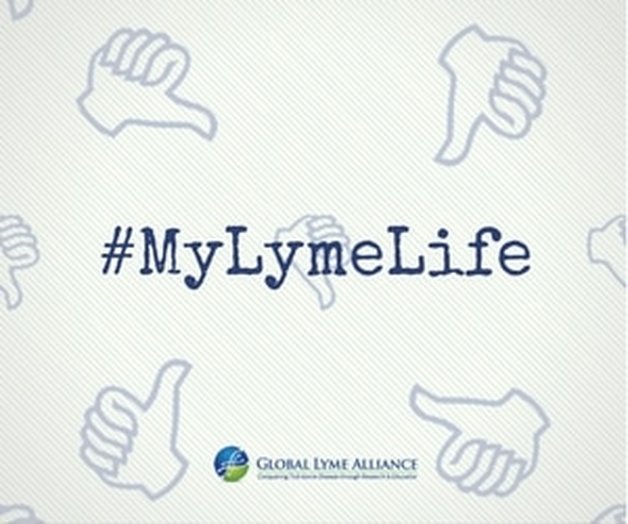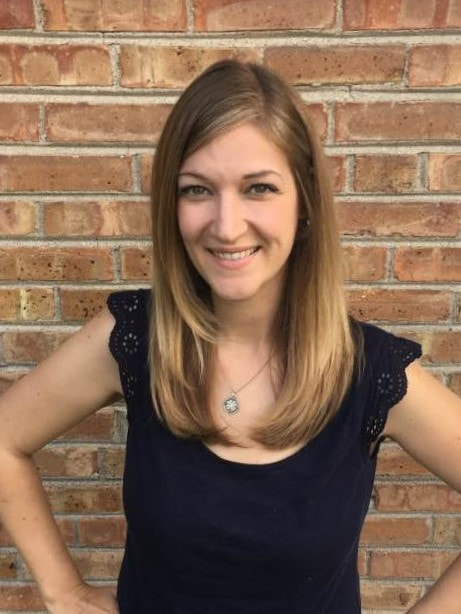|
This article was first published on the Global Lyme Alliance blog on December 17th, 2016. Most of the links on this post are informational, but a few are affiliate links to help maintain this website. Getting bad news is hard for anyone. For people with a chronic illness, like Lyme disease, it can happen often. Here are 8 tips to help you manage the bad news. I went through three biopsies of my spine trying to find a reason why my MRI was so drastically abnormal. All three biopsies were inconclusive. This process is not for the faint of heart. It consists of fasting for an entire day, getting an IV, laying on your stomach in a CT machine, while the doctor sticks a large needle in a precise location within my back. During my first two biopsies, they took a sample of my bone, which I could feel them chip away. The sedative and twilight anesthesia helped, but caused me to throw up about an hour after I finished the procedure. Each time I prayed for an answer to my long-awaited question, and each time the lack of a diagnosis stung a little more. For people with chronic illnesses the medical tests are non-stop. My one good vein has so much scar tissue it’s hard to get blood from it anymore. Sometimes those test results are positive and hopeful, but many times they aren't. The bottom line is when you get news about your health that isn't what you wanted to hear, it's very hard to cope with; and for people with chronic illness, it happens over and over again. Here is some advice on how to respond: 1. Cry. You better believe I've cried a lot after a phone call from a doctor or an email from a lab. It's okay to be disappointed, sad, and scared when you get bad news. Let the river of tears flow. Life is not always kind. 2. Talk to someone. When the news is bad, it can be helpful to talk to someone. This person can be your partner, parent, best friend, or a professional. Pretending you aren't hurting and putting on a brave face won't serve you in the long run. 3. Don't let the test results define you. Test results are numbers on a page or the label of a diagnosis, but often these things are changeable, not fixed. I know one day my inflammatory markers will go down and the Lyme disease will be in remission. When I get bad news, I know it's a measure of my current state and it's only temporary. 4. Get a second opinion. If I hadn't gotten a second opinion, or a third, or a fourth, I never would have gotten a correct diagnosis of Lyme disease. It's also important to remember there is a time to gather new information and a time to contemplate what you know; try to find a balance. 5. Write down an action plan. When another spot of inflammation showed up on my CT scan, I was devastated and overwhelmed by the number of follow up tests and conversations with doctors that needed to take place. I was worried if I didn't get it all done instantly something would get missed. I paused a moment and took the time to make a list of everything that needed to get done. Then, I put each item in order of importance. It helped to take all the anxious noise in my brain and lay it out in a strategic plan. 6. One step at a time. After you have developed your action plan, take one step at a time. You might not get all the calls made in one day. There may be tests that you have to be schedule far in advance or may take weeks for the results to come back. As long as you are marching toward the goal, don’t push yourself too hard. 7. Ask for help. Let's face it, brain fog doesn't necessarily lend itself to creating and following through on a detailed health plan. Ask your doctor, partner, or friend to talk it through with you. Maybe they have insights that you didn't consider. 8. Look for a reason. I don't necessarily believe everything happens for a reason. But my personal philosophy is even if there isn’' a reason, it still happened, so you have to make one. When I had my inconclusive biopsy, a good friend said: maybe now isn't the right time to find an answer. She was right. If I'd received a negative biopsy I might have given up the fight for answers, but since I had no answer I sought out a new doctor who ultimately led me to my Lyme diagnosis. Each test, whether good, bad, or inconclusive is another clue along the path to recovery. My mom recently had an abnormal mammogram and had to go through a biopsy of her own. With our stomachs tied in knots, my entire family waited for the results. We breathed a collective sigh of relief when the biopsy came back negative. When you get bad news about your health it's important to remember that sometimes there is good news. I've had my share of positive test results. They're just overshadowed by the negatives ones. Illness is a journey of ups and downs, for every dark of night there is the light of day. Waiting for the sun to come up is hard, but it's there hidden just behind the horizon, ready to rise. "This journey has always been about reaching your other shore, no matter what it is." - Diana Nyad
0 Comments
This article was first published on The Mighty on December 1st, 2016. Most of the links on this post are informational, but a few are affiliate links to help maintain this website. My lab tests tell the story of a body in peril. My inflammatory markers are dangerously high, and my helper cells are very low. The MRI of my spine continues to alarm and perplex doctors. Nevertheless, here I am—upright and able to live a semi-normal life. My immune system been covertly fighting Lyme disease for more than two decades, and I only recently caught wind of the battle. Don't get me wrong. I haven't been healthy this entire time. I've been on a slow decline for the last 10 years and my body finally cried uncle. I certainly didn't do anything to help the fight. I ate more macaroni and cheese than I'm willing to admit, routinely talked myself out of working out, and allowed stress to perpetually sit shotgun. Not only was my body fighting a smoldering infection, it was doing so without any ammunition. Often people with chronic illness feel betrayed by our bodies—and rightfully so. Our mind continues to grasp at a normal life, telling us we should be exercising and waking up earlier, meanwhile our bodies are in an endless tug of war screaming out for rest and recovery. I find myself saying "if only" a lot. If only I wasn't so tired. If only I didn't have a headache. Blaming my body instead of Lyme for letting me down over and over again. When I take a closer look, I see my body has come through for me every time. When the bacteria fueled itself off the iron in my red blood cells, my body shut down menstruation to keep me from becoming seriously anemic. When my adrenal glands became worn out from fighting the inflammation in my body, my thyroid gland kicked into overdrive to compensate. These were warning signs that my body was severely out of balance, but it did what it had to do to keep me functioning. Even when we are drastically ill, our bodies fight with every weapon they have to keep us alive. Thanklessly, my body marches on giving Lyme disease everything it's got. My helper cells seek out the elusive bacteria hiding under the invisibility cloak known as a biofilm and hunts down the bugs taking refuge in my joints. At the end of the day, my body rarely asks for anything. It asks for the occasional nap, nutrient-rich food and a nice warm bath. Otherwise, it shoulders the heavy burden, so I can live my life. Sometimes my body needs weapons it doesn't have on its own, such as the jab of an antibiotic or the uppercut of a supplement. My job is to do the best I can to supply it with the right ones. I give my body bullets of healthy food. I don't suppress it with stress; I build it up with sleep and meditation. I try not to give the opposing army any advantages like sugar and yeast to feed on. Every day I get better at showing my body the respect it deserves. At this point in my treatment, my pain is diminishing and my energy is starting to pick back up. As I write this, I just returned from a social gathering where I met new people and caught up with old friends. I used to come home from events like this and immediately crash. Today, I'm sitting here typing with a brain free of fog. On paper, I should be struggling to lift my head off the pillow, but now I'm able to work part-time, walk my dog, and occasionally go out with friends. I still have a long way to go before I can declare victory, but I'm getting better every day. "I came to see that what constitutes strength is not just muscle or will. It can also include the most desperate vulnerability, the saddest heartache, the lightest, sweetest laughter." - Brenda Shaughnessy |
WelcomeI'm Kerry (She/Her/Hers) and I am a licensed therapist, group facilitator, poet, writer, & speaker. This is a place to acknowledge and validate our suffering and trauma, while also learning how to turn toward aliveness and spaciousness. Categories
All
Archives
April 2024
|
|
Copyright © 2024 Kerry J Heckman All rights reserved. Disclaimer.
|
|



 RSS Feed
RSS Feed